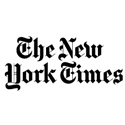
Source: What Pakistan Knew About Bin Laden
By CARLOTTA GALL
http://mobile.nytimes.com/2014/03/23/magazine/what-pakistan-knew-about-bin-laden.html?referrer=
Benazir Bhutto had spoken out more than any other Pakistani politician about the dangers of militant extremism. She blamed foreign militants for annexing part of Pakistan’s territory and called for military operations into Waziristan. She declared suicide bombing un-Islamic and seemed to be challenging those who might target her. “I do not believe that any true Muslim will make an attack on me because Islam forbids attacks on women, and Muslims know that if they attack a woman, they will burn in hell,” she said on the eve of her return.
She also promised greater cooperation with Afghanistan and the United States in combating terrorism and even suggested in an interview that she would give Western officials access to the man behind Pakistan’s program of nuclear proliferation, A. Q. Khan.
President Karzai of Afghanistan warned Bhutto that his intelligence service had learned of threats against her life. Informers had told the Afghans of a meeting of army commanders — Musharraf and his 10 most-powerful generals — in which they discussed a militant plot to have Bhutto killed.
On Oct. 18, 2007, Bhutto flew into Karachi. I was one of a crowd of journalists traveling with her. She wore religious amulets and offered prayers as she stepped onto Pakistani soil. Hours later, as she rode in an open-top bus through streets of chanting supporters, two huge bombs exploded, tearing police vans, bodyguards and party followers into shreds. Bhutto survived the blast, but some 150 people died, and 400 were injured.
Bhutto claimed that Musharraf had threatened her directly, and Karzai again urged her to take more precautions, asking his intelligence service to arrange an armored vehicle for her equipped with jammers to block the signals of cellphones, which are often used to detonate bombs. In the meantime, Bhutto pressed on with her campaign, insisting on greeting crowds of supporters from the open top of her vehicle.
In late December, a group of militants, including two teenage boys trained and primed to commit suicide bombings, arrived at the Haqqania madrasa in the northwestern town of Akora Khattak. The madrasa is a notorious establishment, housing 3,000 students in large, whitewashed residence blocks. Ninety-five percent of the Taliban fighting in Afghanistan have passed through its classrooms, a spokesman for the madrasa proudly told me. Its most famous graduate is Jalaluddin Haqqani, a veteran Afghan mujahedeen commander whose network has become the main instrument for ISI-directed attacks in Kabul and eastern Afghanistan.
The two young visitors who stopped for a night at the madrasa were escorted the next day to Rawalpindi, where Bhutto would be speaking at a rally on Dec. 27. As her motorcade left the rally, it slowed so she could greet supporters in the street. One of the two teenagers fired a pistol at her and then detonated his vest of explosives. Bhutto was standing in the roof opening of an armored S.U.V. She ducked into the vehicle at the sound of the gunfire, but the explosion threw the S.U.V. forward, slamming the edge of the roof hatch into the back of her head with lethal force. Bhutto slumped down into the vehicle, mortally wounded, and fell into the lap of her confidante and constant chaperone, Naheed Khan.
As Bhutto had long warned, a conglomeration of opponents wanted her dead and were all linked in some way. They were the same forces behind the insurgency in Afghanistan: Taliban and Pakistani militant groups and Al Qaeda, as well as the Pakistani military establishment, which included the top generals, Musharraf and Kayani. A United Nations Commission of Inquiry into the circumstances of Bhutto’s death found that each group had a motive and merited investigation.
Pakistani prosecutors later indicted Musharraf on charges of being part of a wider conspiracy to remove Bhutto from the political scene. There was “overwhelming circumstantial evidence” that he did not provide her with adequate security because he wanted to ensure her death in an inevitable assassination attempt, the chief state prosecutor in her murder trial, Chaudhry Zulfiqar Ali, told me. (Musharraf denied the accusations.) A hard-working, hard-charging man, Ali succeeded in having Musharraf arrested and was pushing to speed up the trial when he was shot to death on his way to work in May 2013.
Ali had no doubts that the mastermind of the plot to kill Bhutto was Al Qaeda. “It was because she was pro-American, because she was a strong leader and a nationalist,” he told me. A Pakistani security official who interviewed some of the suspects in the Bhutto case and other militants detained in Pakistan’s prisons came to the same conclusion. The decision to assassinate Bhutto was made at a meeting of the top council of Al Qaeda, the official said.

No comments:
Post a Comment